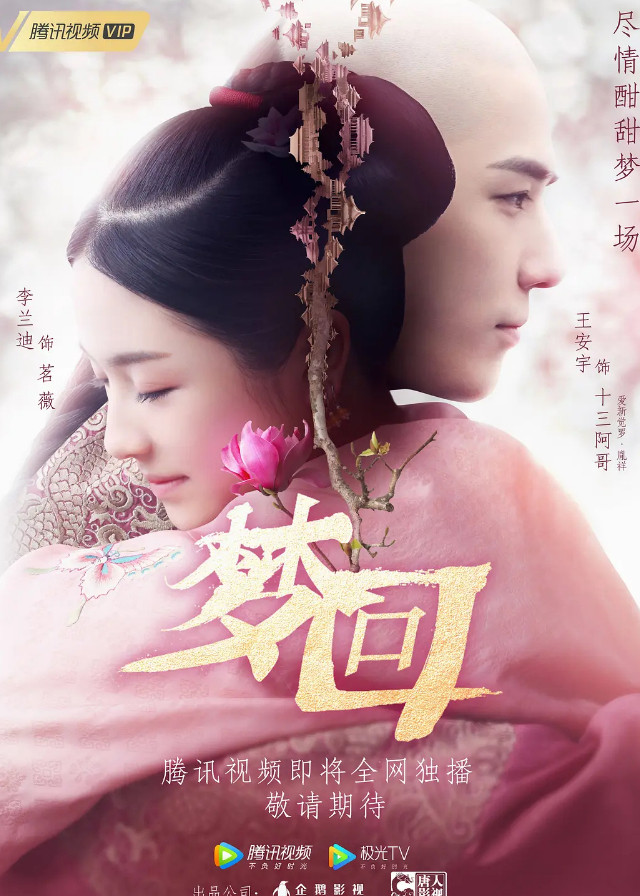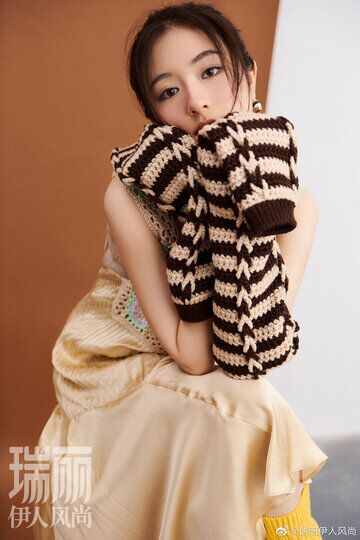Dreaming Back to the Qing Dynasty Episode 34 Recap
> Dreaming Back to the Qing Dynasty Recap
With the imperial court cutting down palace expenses for the front-line war, Noble Consort Nalan grew increasingly displeased, lamenting that Consort De's influence was growing while hers waned. She remarked that the diminished coal supply meant "my winter is coming." At this opportune moment, Ming Hui sought an audience, requesting to speak privately and asking for the Noble Consort's protection in the harem.
Noble Consort Nalan questioned why Ming Hui, as Consort De's daughter-in-law, would seek her help, given that "the whole harem listens to Consort De now" and she felt she had "nothing but the title of Noble Consort." Ming Hui explained that the crown would likely fall to either Yinzhen or Yinti. While Consort De favored Yinti, she was also Yinzhen's biological mother, and Ming Hui believed "she can't help but care more about Yinzhen."
Therefore, Noble Consort Nalan was the only one Ming Hui could fully trust. Ming Hui then appealed to the Noble Consort's ambition, pointing out that since she had no children, she should consider her future beyond merely being a Consort Dowager. Ming Hui promised that if Noble Consort Nalan helped Yinti ascend the throne, she would receive greater honor and status than Consort De. Swayed by this promise, Noble Consort Nalan agreed to trust Ming Hui and offer her assistance.
Meanwhile, Yinxiang accompanied Xiaowei back to her family home, aiming to uncover the true reason for Xiaowei's time travel. Xiaowei expressed that she felt she had arrived by accident but now seemed "destined to come" to "resolve all the conflicts and live with a clear conscience," particularly concerning Ming Hui's relentless hatred, wondering "what exactly happened in the past that made Minghui hate my guts and refuse to leave me alone."
Upon their arrival, they found Xiaowei’s mother ill in bed, with Ming Hui attempting to force her to drink medicine. The mother vehemently refused, calling Ming Hui a "vicious woman" and declaring, "I'd rather die than take anything from you." Ming Hui insisted, "You need to take the medicine," openly stating her intention, "I want you to live and watch me take revenge." Xiaowei intervened, telling Ming Hui to "drop the act" and "leave."
As Ming Hui exited, she sarcastically commented, "It's so hard to be a good person," then dramatically urged Xiaowei to ensure their mother took her medicine, feigning concern that "my heart will hurt" otherwise. After Ming Hui's departure, Xiaowei's mother recounted Ming Hui's painful past. She explained that Ming Hui, born of a concubine and older than Mingwei, was sent to a village with her biological mother after Mingwei was born due to her lowly birth.
After her mother died, she was brought back to the family. However, the mother recalled Ming Hui's persistent jealousy and bullying of Mingwei, always blaming her. She described how Ming Hui would lie, insisting, "It's not me. I didn't do it. It's my younger sister," and how she would whip Ming Hui until she confessed. Despite Ming Hui's pleas, she was locked in the woodshed, where she cried out, "Let me out. I'm sorry."
The mother then recalled Ming Hui’s transformation after being released, acting "obedient and sensible" and promising to "compromise myself for my sister," but she sensed Ming Hui was only "acting obediently." Xiaowei and Yinxiang visited the desolate woodshed where Ming Hui had been confined. Xiaowei observed the grim atmosphere, feeling Ming Hui's "helplessness even now," and saw old handprints on the walls, recognizing them as "Minghui's hatred" still palpable after all these years.
An investigation confirmed that the medicine Ming Hui gave her mother was harmless, leading Yinxiang to conclude that Ming Hui's actions were merely "to threaten her," and that Xiaowei was Ming Hui's true target, as Ming Hui saw "everyone who loves and protects you as her enemy." Xiaowei admitted her mother's "partiality for me" might have contributed to Ming Hui's resentment, but conceded that Ming Hui's deep-seated intent to harm her was undeniable.
Xiaowei then remembered Ming Hui's earlier tearful apology, where she claimed to have merely incited Mingwei and Yuanqing to elope, leading to their danger. However, Xiaowei questioned why Yuanqing's body was never found if he and Mingwei fell off the cliff together, suspecting Ming Hui's direct involvement in his disappearance. Yinxiang agreed that Ming Hui "has something to do with Yuanqing's disappearance."
Qixiang, eager to avenge her brother's death and expose Ming Hui's numerous "bloody debts," volunteered to investigate, vowing to "settle accounts with her" and "kill Minghui and make her pay." Yinxiang cautioned her against rashness. Following a lead from a hairpin marked with the family crest, Qixiang found a woodcutter who confessed to finding a bag of belongings, including a unique jade pendant that Xiaowei identified as a Yalaerta family token she had worn before entering the palace.
Xiaowei deduced that Yuanqing must have ripped it off Ming Hui as he fell from the cliff. However, Yinxiang explained that the single jade pendant was insufficient evidence to directly convict Ming Hui, as she could easily fabricate an excuse, such as claiming Yuanqing stole it for "travelling expenses," thus embodying the principle that "the criminal would accuse the victim." Xiaowei further revealed that Ming Hui had another "bloody debt"—Mingwei's murder.
She recalled Mingwei's dying words, identifying her killer as "my closest one whom I trusted most," and how Mingwei had forgiven her sister, wishing the tragedy wouldn't befall Xiaowei, who "look[ed] like me." Xiaowei realized that Ming Hui's profound hatred had driven her to repeatedly attempt to murder her, concluding, "We can't let this vicious snake get away and continue to harm people. Minghui's crimes must be exposed. She must receive the punishment she deserves."
Xiaowei confronted Ming Hui with the jade pendant, which Ming Hui initially dismissed. However, the discovery clearly troubled Ming Hui, as she suffered a nightmare later that night. In her dream, she relived the night Mingwei and Yuanqing planned to elope. Yuanqing, a scholar more concerned with his career, suddenly refused to leave with Mingwei, stating he couldn't "let a woman ruin my life" and demanding Mingwei's money as his "patron."
Ming Hui, who had painstakingly orchestrated their elopement to clear her own path to the palace, emerged from the shadows. She furiously demanded Yuanqing take Mingwei, revealing her true motive: "If you don't take her away, how can I substitute for her in entering the palace? How can I achieve success?" When Yuanqing refused, Ming Hui violently pushed him off the cliff, then did the same to Mingwei, who cried out, "Sister, why did you murder me?"
Ming Hui awoke from the nightmare, unrepentant, muttering, "You deserved death. You forced me. You deserved death." Troubled by the lack of concrete evidence, Xiaowei confided in Yinxiang, expressing frustration that they knew Ming Hui was "the cause of all this" but couldn't "accuse her and convict her." Yinxiang reassured her, promising, "she will definitely pay for her crimes. I won't let her get away and continue to harm people."
Xiaowei then mused about her deeper purpose, realizing she had initially believed her arrival was solely to reunite with Yinxiang. However, after their wedding and subsequent entanglements in historical events, always instigated by Ming Hui, she began to suspect her true mission was to resolve her "conflicts with her," which might have originated "before Mingwei died," stating, "Mingwei must not die in vain." Yinxiang, ever supportive, told her, "it doesn't matter whether you came for me or Minghui.
I'm lucky to have met you," affirming that "no matter what happens, we will be together, we will get through this." Shortly after, a palace messenger arrived with an urgent imperial order summoning all princes and their consorts. Xiaowei, noting it was the eleventh day of the month, immediately deduced that Kangxi's health was failing, urging Yinxiang to "be mentally prepared." Yinxiang went to meet Kangxi on the city tower.
Kangxi asked what Yinxiang saw from their vantage point, to which Yinxiang replied, "I see the land of the Qing Dynasty." Kangxi lamented how his sons fought fiercely for the throne, "casting brotherhood aside," reminding Yinxiang that the country belonged to "the people."
He praised Yinxiang's "open and benevolent heart" as "the rarest quality of an emperor" and the reason he considered him "the best candidate for the throne," asking one last time if he would accept the burden of the people. Yinxiang, however, respectfully declined, affirming his commitment to protect the Qing Dynasty but reiterating his desire to "only wish to assist a wise emperor."
Accepting Yinxiang's choice and understanding his desire to avoid the "loneliness" of power, Kangxi decided to "entrust the country to the one you trust most." As Kangxi's health deteriorated, he entrusted Yinzhen with guarding the Palace of Heavenly Purity, instructing him to allow no one, "no matter which prince requests a meeting," to enter. He then summoned Xiaowei, revealing he had repeatedly "allow[ed] you to live" because of Yinxiang.
He acknowledged Xiaowei's perceived role in "damaging the relations between Yinzhen and Yinxiang," yet also recognized her as "the thing that ties them together." Therefore, he would not kill her but instead assigned her the crucial task of ensuring the harmony between his two sons. Xiaowei accepted this profound responsibility, promising to care for Yinxiang and "do my best to maintain their harmony." Kangxi praised her as "straightforward and loyal," just like Yinxiang.
Reflecting on his long reign, having ascended at age eight and ruled for decades, he spoke of stabilizing the Qing Dynasty, acknowledging that it was "time to let go." He dismissed beliefs in immortality and his own fear of death, stating his true, enduring concern was always "the Qing Dynasty." Asking for water, Kangxi expressed his weariness and regret over "lots of tasks uncompleted," despite his accomplishments.
Xiaowei reassured him that he had "done well enough," praising him as "a wise emperor and a loving father." Xiaowei understood that despite Kangxi's grand achievements, at his end, his deepest concern was for his children.












